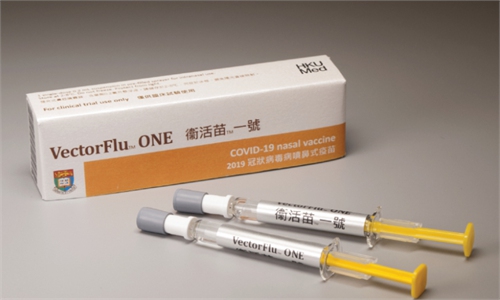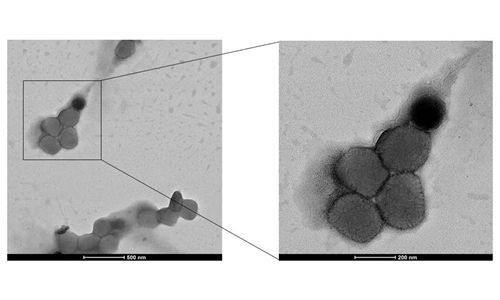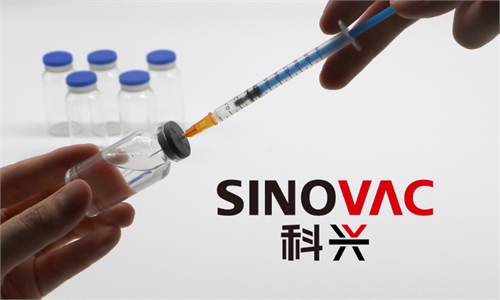China approves 4 new COVID-19 vaccines for emergency use in 2 days, as authorities consider nationwide 4th dose

Residents of Guangzhou, capital of South China’s Guangdong Province, line up to get COVID-19 shots at Huadu District People’s Hospital on December 6, 2022. City authorities revealed that the city’s coverage of booster shots has surpassed 92 percent. Photo: cnsphoto
From 3 pm Sunday to 4 pm Monday, four new COVID-19 vaccines were approved for emergency use in the Chinese mainland, including three recombinant protein-based vaccines, as well as a nasal spray influenza virus vector vaccine, and sources told the Global Times that the authorities are considering a fourth dose.
SinoCellTech, Clover Biophamaceuticals, Wantai BioPharm and WestVac Biopharms announced the approval of their vaccines for emergency use in the mainland. Among them, the vaccine developed by Wantai is the first nasal spray vaccine in the world to be approved for clinical trials, reports said.
Together with the four newly approved ones, there are a total of 12 COVID-19 vaccines available in China, including five inactivated vaccines, four recombinant protein vaccines, one adenovirus shot, one recombinant novel coronavirus vaccine for inhalation and one nasal spray influenza virus vector vaccine, according to a report by Caijing magazine on Tuesday.
Chinese authorities are making plans to kick off a fourth dose in the country, the Global Times learned from a source close to the issue. The fourth dose may be implemented in the near future starting with specific groups, according to the source.
The Global Times learned from some medical staffers in Beijing and Guangzhou that there had been an internal survey among medical workers on their willingness to accept a fourth dose.
The fourth dose may also be provided to those aged 60 and above, as the country is sparing no effort to enhance immunity of this group, which is one of the most vulnerable groups to COVID-19 amid surging domestic cases, sources said.
Along with the optimization of vaccination requirements in major cities, the willingness of residents to receive booster doses of the New Crown vaccine is on the rise. From November 30 to December 3, 612,000 doses of the New Crown vaccine were administered nationwide, an increase of nearly 10 percent compared with the same period last week.
Starting from November 30, major cities including Beijing, Guangzhou, Chongqing, Tianjin and Shanghai, along with various cities and counties, announced one after another plans to optimize epidemic prevention and control measures.
Some of the cities said that they will not check nucleic acid test results when people take public transportation, while other cities said that people can enter shopping malls and other general public venues without test results. In many cities, registration is no longer required to purchase antipyretic and cold medications, and hospitals no longer offer nucleic acid testing to members of the public who do not have a need to seek medical care.
Observers noted that the ability to protect against the Omicron strain will likely determine which vaccine will be welcomed in the upcoming booster dose market after the outbreak prevention and control policies are optimized.
According to the National Health Commission, the average full-vaccination rate of the entire population had reached 90 percent as of November 28. The rates of people aged 60 and above and those aged 80 and above who had completed full vaccination were about 86 percent and 66 percent, respectively.
On November 29, the Joint Prevention and Control Mechanism of the State Council released a plan to further promote vaccination among the elderly group.



